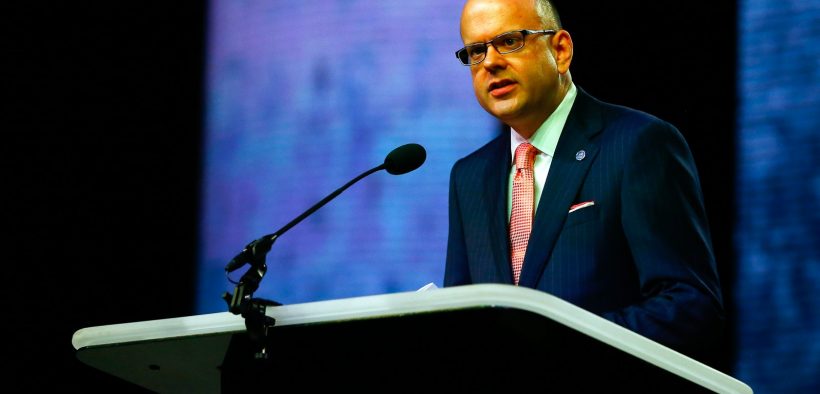SBC Seminary President: Recent Race Statement Not About ‘Preserving Whiteness’

The president of Southwestern Baptist Theological Seminary has expressed “lament” for “unintentionally” hurting African American members of his denomination with a recent joint statement on racism by all six Southern Baptist seminary presidents.
But Adam Greenway defended the Council of Seminary Presidents’ determination about critical race theory and intersectionality, an ideology rooted in Marxism that addresses systemic racism and exploitation when gender and race intersect. The presidents’ Nov. 30 statement said such theories are not compatible with the Baptist Faith and Message, which lays out Southern Baptist doctrine.
“Critiquing CRT/I is not about preserving ‘whiteness,’” but rather pursuing righteousness and justice,” Greenway wrote in a Tuesday (Dec. 22) open letter on his seminary’s website.
Speaking solely for himself and not the other members of the Council of Seminary Presidents, Greenway said that their statement “did not deny systemic racism.”
“I want to make this point as charitably but honestly as I can: misconstruing the CSP statement’s rejection of CRT/I as being synonymous with or code for the SBC seminary presidents denying systemic racism is bearing false witness,” Greenway said.
Access to MinistryWatch content is free. However, we hope you will support our work with your prayers and financial gifts. To make a donation, click here.
Since the presidents issued their statement, several Black church leaders have announced that they are leaving the mostly white denomination. SBC Executive Committee President Ronnie Floyd and SBC President J.D. Greear plan to meet in January with the seminary presidents and officials of the SBC’s National African American Fellowship after fellowship leaders requested a meeting with the seminary presidents.
Greenway, whose school is in Fort Worth, Texas, said he chose to write his letter after learning that the Rev. Ralph D. West said he was withdrawing his Houston megachurch’s affiliation with the nation’s largest Protestant denomination. Greenway said he also heard from an African American student at his seminary who wrote him to ask whether he should remain at the institution.
Greenway addressed a point raised by the Rev. Marshal L. Ausberry Sr., the National African American Fellowship’s president, about the “‘optics’ of ‘six Anglo brothers’” making a statement about racism. Such criticism of the presidents’ decision to speak up, Greenway suggested, may be reflective of the very theory that is being debated.
“With the greatest of respect toward and love for those who have expressed this point of view, such a notion itself could be construed as consonant with the worldview framework of CRT/I, even if not the stated intention or expressed ideology of those making this specific criticism,” he said.
The presidents as a group issued a Tuesday statement to The Washington Post that reflected some views akin to Greenway’s.
“We regret that our statement inadvertently caused significant hurt among some black brothers and sisters,” they told the newspaper. “This was never our intention or in our heart, even as we expressed our genuine concern about what we see as dangerous ideologies.”
The only Black person to serve as the denomination’s president, New Orleans pastor Fred Luter, signed a statement on justice and repentance last week (Dec. 18). That document, initially issued by 20 Black and white SBC leaders, noted SBC progress on becoming more inclusive but added “some recent events have left many brothers and sisters of color feeling betrayed and wondering if the SBC is committed to racial reconciliation.”
Greear, while affirming the seminary presidents’ statement, more recently called on fellow Baptists to “carefully and soberly” consider the “Justice, Repentance, and the SBC” statement.



